Hans Zimmer MasterClass Review
Table of Contents
About Hans Zimmer MasterClass
Ever dreamed of becoming a film composer? Learn from the best by taking the Hans Zimmer MasterClass session. This educational video platform hosts several internet courses that are taught by celebrity professionals.
This includes Gordon Ramsay, Steven Curry, and Wayne Gretzky. Based exclusively online, this streaming service exposes curious learners to multiple fields of study.
Within this article, we’ll be focusing on the one-and-only Hans Zimmer. Best known for his work on Disney, Interstellar, and The Dark Knight, this highly acclaimed film composer is responsible for many of your favorite childhood tunes.
This MasterClass course enables students to get a closer peek at how to properly write engaging compositions for movies. If you’re a music lover or are interested in film production, this course may be for you.
Quiet down; class is in session. This Hans Zimmer MasterClass review will provide some insight into this course, the artist itself, customer feedback, pricing details, and more to help you decide if it’s worth looking into.
Who is Hans Zimmer?
He’s the guy that’s responsible for The Circle of Life, the Inception theme song, and the Pirates of the Caribbean soundtrack. Yep, major credit to Hans Zimmer for basically creating the playlist of our childhood.
This well-known film composer is considered one of the best in Hollywood, as he ranks up with John Williams, Ennio Morricone, and Joe Hisashi.
Based in Germany, Zimmer was somewhat of a childhood prodigy back in his elementary school years. Self-taught at a young age, he went on to accomplish hundreds of movie soundtracks through the course of his career.
This included such blockbuster hits like The Amazing Spiderman 2, Sherlock Holmes, and Dunkirk. He has also collaborated with several big-name artists such as Steve Mazzaro and Pharrell Williams.
Over the years, Zimmer has amassed an impressive collection of awards and trophies for his work.
This includes the Academy Award for Best Music Score in 1995, the Grammy Award for Best Score Soundtrack for Visual Media in 2006, and the Critics’ Choice Movie Award for Best Score in 2001.
Hans Zimmer Teaches Film Scoring MasterClass Review
Don’t lie; at one point in our lives, we all imagined what it would be like to compose in front of an orchestra. And yes, I’m talking about waving that substitute pen in place of a conducting baton.
If you love to write music or are generally curious as to how film scorers arrange melodies—we suggest taking a few courses of the Hans Zimmer MasterClass session.
Taught by Hans Zimmer himself, the award-winning composer will provide a thorough lecture on how he conducts musical scores. This includes taking an in-depth analysis of his previous compositions.
By watching his online tutorials, students will learn how to write arrangements based on setting, emotion, and character.
This course contains 31 lessons in total, which is equivalent to 5 hours and 40 minutes of watch time. To give readers a taste of what’s in store, some class titles include “Scoring Under Dialogue”, “Music Diary: Sherlock Holmes”, and “Case Study: The Dark Knight”.
And like all tutorials, it also comes with PDF workbooks for offline learning. We’ll now review each of the chapters in the Hans Zimmer Teaches Film Scoring MasterClass.
Sneak Peek: Introduction
All good teachers start with an introduction. While Hans Zimmer can’t meet you formally in person, this MasterClass Introduction offers a 2-minute glimpse to help students get a feel of the course.
This includes a brief look at what this lecture includes, such as composition analysis and writing for emotion. Bubbling in excitement? You and I are on the same page.
Hans Zimmer states, “Ideas are not limited by budget. The creative process takes place in your head. The interesting ideas come from some kid in a garage in the Bronx. You just need to break through the myth that you can’t create a great Hollywood blockbuster on an iPad.”
Sneak Peek: Themes
Is it happy, sad, action-packed, or angry? Depending on the mood, there are several ways to create a theme. Within this Hans Zimmer MasterClass session, students will be able to learn how this award-winning composer writes his first few notes of music.
This includes his preferred line of composition (spoiler alert: it’s in D) and how to add different effects and tones in order to polish its timbre. Estimated to last 16 minutes total, this Themes class can help you get started with your musical composition.
“You have to make a decision that whatever those opening notes are, whatever the first thing is that you have to say, is actually going to hold water, is actually going to somehow take you through this vast arc of a story,” Hans Zimmer shares in his MasterClass.
Sneak Peek: Story
You can’t write music without telling a story. In this 10-minute Story MasterClass session, Hans Zimmer goes into detail on how to compose songs that fit within a certain setting or character frame.
Throughout this tutorial, he states the importance of unearthing a ‘hidden’ meaning behind a specific scenario or scene.
Best put by Zimmer himself:
“You want to go and slip in underneath and find that bit that they’re not illuminating yet, that takes the whole thing just that step further into sometimes a metaphysical world, sometimes into a more emotional world, sometimes just figuring out how to color a scene in a slightly different way.”
Sneak Peek: Directors: Part 1
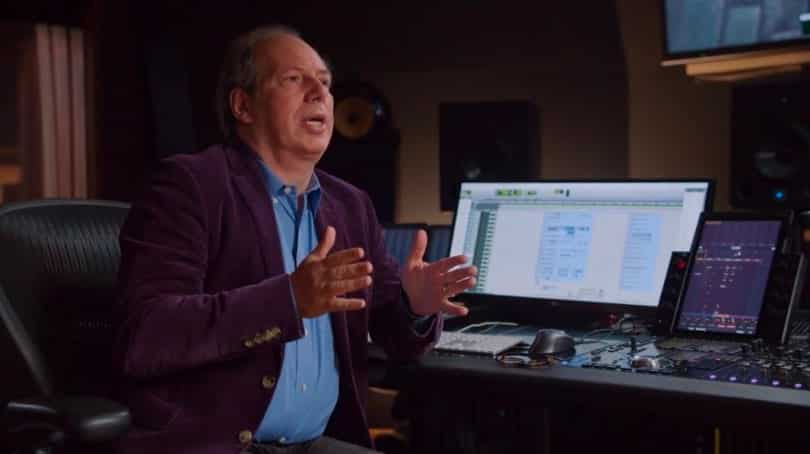
You know what they say, teamwork makes the dream work. Throughout his writing process, Hans Zimmer teaches the significance of effective communication—specifically towards the director in charge.
Within this 9-minute Directors: Part 1 MasterClass section, students will learn how to transform their vision into a tangible composition.
Zimmer concludes, “You and the director make a pact that you’re going to do this movie together, and you’re going to do your utmost and your best to go and make his film great, even if it means you have to kill him sometimes.”
Sneak Peek: Directors: Part 2
A continuation of its previous session, this 8-minute Hans Zimmer MasterClass session goes into more detail about his thinking process when creating a musical score.
In order to have a positive relationship with the director, students should stay clear of technical speech. Instead, they should ‘re-inspire‘ them—which helps to get the overall feel of the mood.
In one salient quote, Zimmer shares a common habit of his when he talks to a director: “I always see this as part of my job, is that the first conversation we have when he returns from battle is that I remind him why we wanted to go and do this thing in the first place.”
Sneak Peek: Directors: Part 3
Made as the final installment of the Directors series, this concluding session details a few key points in maintaining a strong relationship with the director.
Throughout this 6:46 minute tutorial, Hans Zimmer shares how he composes different types of scores for the same director.
This is especially towards Ridley Scott, who is a Hollywood filmmaker responsible for Thelma and Louise and the Gladiator. Within this MasterClass, Zimmer provides some insight into working with this award-winning director:
“Everybody looks at the amazing way he shoots things and the amazing compositions and the amazing eye he has and the amazing artistry. But underneath, underneath, underneath, all that, the foundation for all of that is, he wants to go and tell a good story.”
Sneak Peek: Sound Palettes
In technical terms, music is just a varied combination of different notes. In order to bring it to life, you need to inject some style into substance.
This Hans Zimmer MasterClass section teaches the importance of layering sound, tone, and ambiance when creating a score.
Throughout this 17-minute tutorial, Zimmer offers an in-depth look on how he created this musical composition for Batman:
“We really tried to figure out how the music could seep, dissolve, metamorphosize into a more abstract sound, into atmospheres, into room tones, could dissolve into the proper hard real sound effects which could then, at the same time, be reflected in the images that you saw.”
Sneak Peek: Creating with Synths
Like most film composers, Hans Zimmer is known for his heavy use of synthesizers within his arrangements.
Within a 21-minute Creating with Synths timeframe, students can learn the importance of using this electronic musical instrument to enhance the piece’s richness and mood.
In one inspirational quote, Zimmer states that anybody can make Hollywood-type music without the use of fancy equipment:
“You just need to break through the myth, the myth of the elitism that—unless it’s a place where you can’t play music on it, you know? I’m saying if it’s a laptop, you can make music on it.”
Sneak Peek: Scoring to Picture
Music can do a lot in setting a particular mood or environment. Condensed in a nearly 10-minute MasterClass, Hans Zimmer will go over the basics of scoring compositions for specific scenes.
Throughout this section, students will learn when not to write music for certain situations, and how to build momentum in a given piece.
Hans Zimmer poses this question to his students: “As you start…you go into the scene, into the dialogue, into the color that you want to use. Here’s the thing, if you suddenly stop forward momentum because there’s a dialogue scene, how does it affect the rhythm of the whole movie if you’re doing this?”
Sneak Peek: Scoring under Dialogue
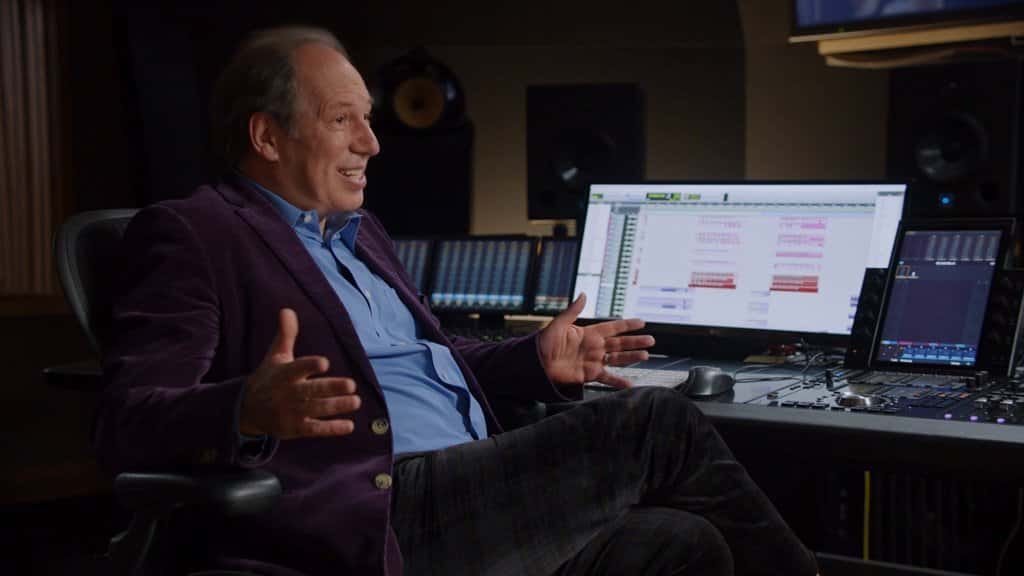
It’s all about building tension and emotion. Summarized in a short 9-minute and 12-second cameo, Hans Zimmer teaches the significance of music under dialogue.
By picking up a few tips and tricks from this Hans Zimmer MasterClass, students will learn how not to overpower critical line reads and scenes.
Within this quote, Zimmer shares the importance of conveying the story and emotion of a character’s dialogue:
“Most screenwriters, if there are any good ones, will pick just the right words and just the right amount of words to get that story across. So as a composer, you have to do the same thing.”
Sneak Peek: Tempo
You’ve got slow, regular-paced, and fast. Depending on the mood or setting, a quick change in Tempo can do wonders in conveying a certain theme or feeling.
In a speedy 9-minute and 42-second section, this MasterClass section highlights the significance of drums, BPM, and how to arrange a composition to match the intensity of the film.
Zimmer states that the metronome is just a ‘click.’ But, “if you listen carefully, something in your head—not maybe a tune, but a texture, or a feeling, or something will come about.”
Sneak Peek: Tempo: Sherlock Holmes Scene
It’s time for a case study! Within this exciting 4-minute section, students can get a sneak peek into how Hans Zimmer created the soundtrack for a Sherlock Holmes Scene.
By manipulating tempo, rhythm, and moving certain notes, this award-winning composer was able to match the song’s environment with the action-clad nature of the movie.
“You know, it’s like fate just grabs you and imposes its own rhythm on top of that. And I am not purposefully moving notes, it’s just like boldly sticking to one note,” Zimmer shares as he narrates his composition shot by shot.
Sneak Peek: Music Diary: Sherlock Holmes
All great masterpieces originate from a mess of ideas. To help avoid that dreaded ‘artist’s block, Hans Zimmer encourages students to keep a music diary when composing a certain arrangement.
He uses his work in Sherlock Holmes as a case study, as he details his thought process before putting the notes on paper.
In this 24-minute “Music Diary: Sherlock Holmes” session, Zimmer shares a few of his brainstorming methods:
“I just start writing my ideas down in a sort of diary-type fashion, where every day I just move forward in this piece. And it starts somewhere, and it’s trying to find the theme or trying to find a vibe or trying to find a mood.”
Sneak Peek: Character
You can’t write a musical composition blindfolded. With that I mean, it’s not advised to compose a song without knowing the Character it’s intended for.
Condensed in a short, 8-minute clip, Hans Zimmer educates students on the significance of pairing backstory, emotion, and personality into every theme.
This Hans Zimmer Masterclass review includes a quick case study on Sherlock Holmes and Jack Sparrow from the Pirates of the Caribbean. Zimmer answers some notable questions:
- Does this character have a past?
- Did some tragedy befall him in his youth?
- What drives the character?
- What’s hidden from us that we don’t know about the character, that makes him behave in a certain way?
Sneak Peek: Character Theme: Batman
What makes the Batman theme so iconic? Luckily, this 10-minute Character Theme MasterClass clip shares all the deets when it comes to background composition. Students are given an insider peek as to how Hans Zimmer created the famous melody.
“Part of the problem is when you use something as simplistic as a two-note device you don’t quite believe in it. You think you’re supposed to do more, you’re supposed to write a big, heroic theme. But everything we tried in there always led us back to this,” Zimmer shares in this exclusive MasterClass.
Sneak Peek: Character Theme: The Joker
Considered one of Hans Zimmer’s all-time favorite compositions, students are given first access as to how he created the unforgettable Joker theme. Part of the Dark Knight franchise, this highly nominated film composer provides an in-depth view of his thought process.
Within this Character Theme 9-minute clip, Zimmer shares his understanding of the character and how it impacted his final score. He concludes:
“It was much more of a sort of a punk attitude, which I can sort of get into and just anarchy in Gotham City…It’s like a guitar string which is too tight. So the sound itself has a built in recklessness and a built in danger to it.”
Sneak Peek: Character Theme: Jack Sparrow
When it came to developing the Jack Sparrow theme song, Hans Zimmer put a metaphorical pirate hat on in order to get a feel of his personality.
Within this 10-minute and 34-second tutorial, Hans Zimmer MasterClass students get an inside scoop as to how he created the iconic Pirates of the Caribbean melody.
“I try to find the tone for the movie, more than anything else, and you know, build the set and then put the actors into it,” Zimmer says. “And you’re trying to describe a person to somebody else who has never met that person.”
Sneak Peek: Case Study: Frost/Nixon
Sometimes, the most beautiful compositions rely on simplicity. With a lesson time of about 13 minutes, this MasterClass Case Study provides a short look into the soundtrack of Frost/Nixon.
Throughout this course, Hans Zimmer offers his line of thought when it comes to arranging a minimalist piece for this politically driven movie.
“The president today took his resignation—All it is me, a bunch of synthesizers, and one cellist…it’s just the variations on that riff all the way through that became, sort of, gold as far as material was concerned. And I never knew I was writing the opening to the film,” Zimmer recalls.
Sneak Peek: Case Study: The Dark Knight
The Dark Knight is full of pivotal moments; Hans Zimmer paid close attention to the intensity of his arrangements. Shortened in an 8-minute Case Study, viewers will learn how this famous film composer built tension for the famous Batman flick.
“We can make this really exciting by pumping a lot of fast-paced music underneath it,” Zimmer shares in this MasterClass session, “I’m actually trying to create an enormous amount of space, which does create tension, and slow everything down so you’ll really take in what is going on.”
Sneak Peek: Working with Musicians: The Orchestra – Part 1
Like directors, film composers need to do a casting call of professional players. Summarized in a quick 10-minute clip, this Working with Musicians MasterClass session shares what Hans Zimmer looks for in a composer. Throughout this section, he shares some colorful anecdotes of artists he’s hired throughout his career process.
Zimmer fondly remembers his first impression of Tina Guo:
“When she comes into the room, she’s one of the most polite and humble and quiet people, you know, very reserved, very shy. But when she grabs the cello—she has a certain way of grabbing the cello and moving the bow in front of it—it’s like some ninja warrior princess, and all hell is unleashed.”
Sneak Peek: Working with Musicians: The Orchestra – Part 2
Made as a part 2 version, this MasterClass follow-up continues Hans Zimmer’s working process when collaborating with other musicians.
Within this 7-minute section, students will learn how to constructively communicate with their peers in order to make a successful piece.
“It’s about the conversation,” Zimmer states. “It’s about feeling what, you know—and instantly feeling what they are feeling when you play them the piece of music.”
Sneak Peek: Feedback & Revisions
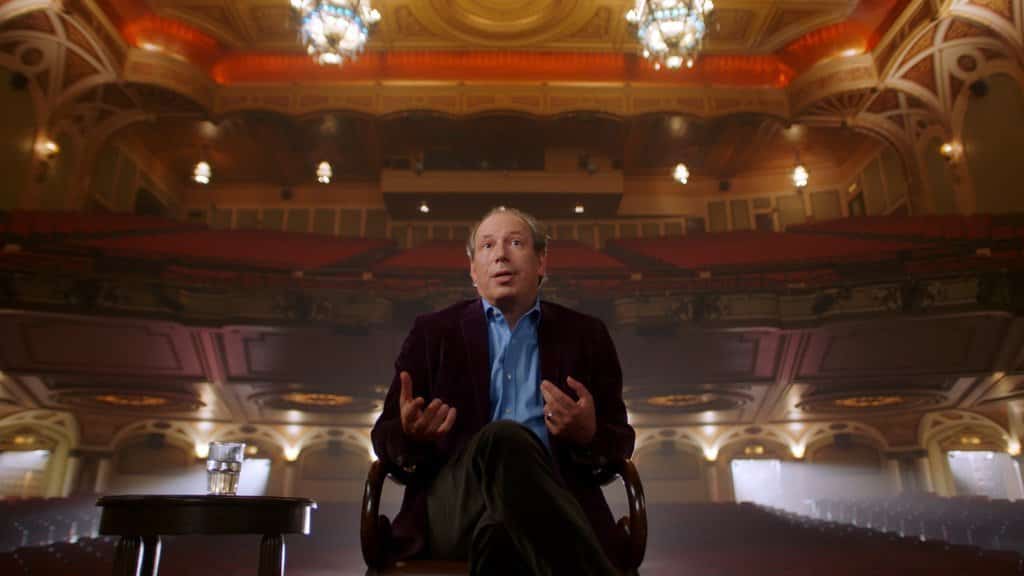
There’s always a rough draft, and that’s not exclusive to authors or visual artists. In this 9-minute and 38-second Sneak Peek lesson plan, Hans Zimmer shares how he deals with feedback and criticism when submitting his work.
In his own words, he states the importance of maintaining a good degree of professionalism during the revision process.
“Better isn’t necessarily the quality of the music,” Zimmer teaches. “It’s understanding what we are trying to say in this scene and just getting better at executing it…And it’s really me learning the movie.”
Sneak Peek: Audience Feedback
Art is open to public interpretation. Vague as it may seem, it’s actually quite scary if you’re an accomplished film composer or artist.
This 11-minute and 37-second Hans Zimmer Audience Feedback section offers a POV on how this ultra-famous scorer handles spectator criticism.
“I like to put the music in front of an audience. If it’s just 15 of your best friends, you’re never going to learn anything. But if you have 600 people in a room, you know pretty quickly if you overstepped the mark,” Zimmer says.
Sneak Peek: Writing Tips: Part 1
It’s time to write those ideas down on paper. Concluded in a brief, 16-minute MasterClass clip, Hans Zimmer shares his note-taking process when composing music.
By watching this segment, students will learn how to overcome ‘artist’s block’ and how to layer sounds in a computer program.
“The reason I love computer graphics is because those are the guys who are holding up everything,” Zimmer states in the Writing Tips: Part 1 session. “So they are actually buying me time, if I just turn the process around. So now the way I work is, forget the spotting session.”
Sneak Peek: Writing Tips: Part 2
This 11-minute and 12-second MasterClass is all about expressing creativity. Hans Zimmer shares a bit of insight on where he finds inspiration when composing his songs.
Throughout this section, viewers will get a feel of his passion and thought process as he creates each composition.
“It’s some weird, strange version, which is my version of the film, my little bit on the—left-hand side of the corner of the screen, there’s something going on that nobody pays attention to. And it becomes really important to me,” Zimmer concludes in the Writing Tips: Part 2 section.
Sneak Peek: Hans’ Journey
For those interested in learning more about his background, we suggest skipping over to the Hans’ Journey section of this MasterClass.
During this small 14 minute and 40-second clip, viewers are treated to an inspiring story of his career in music and his evolving love for writing songs.
“There was a sort of freedom attached to the way we could structure music and we could– if today I wanted to write a psychedelic country and western heavy metal song, nobody was stopping me from doing it,” Zimmer recalls.
Sneak Peek: Learning by Listening
Improvement doesn’t rely on sight when it comes to music. Shortened to a convenient 16-minute clip, this Sneak Peek MasterClass session details the crucial nature of listening to one’s final composition.
Hans Zimmer provides an in-depth commentary of editing, communication, and how to hear for certain mistakes and errors.
Zimmer shares a bit of his opinion on the music industry as a whole:
“I think if you observe musicians working together, but you take it for granted that they can play their instrument. What happens is that they actually really learned how to listen. And just because that’s not so visually obvious, it might be more of a secret.”
Sneak Peek: Life of a Composer: Part 1
All career paths have their ups and downs. Considered one of the final segments of this exclusive Sneak Peek MasterClass, this 7-minute clip shares some inspirational advice that Hans Zimmer holds true to his heart.
This includes motivating tips on how to stay creative and how to never give up when things get rough.
“I tell you these stories and they are funny and you know because they’re all the funny stories because we got through it,” Zimmer teaches. “We got through it because we failed a lot in it.”
Sneak Peek: Life of a Composer: Part 2
When the going gets tough, the tough get going. Within this 9-minute and 25-second Sneak Peek, MasterClass, Hans Zimmer offers some career advice to help motivate aspiring film composers.
Throughout this section, students will learn the significance of staying true to one’s vision and the importance of believing in yourself.
“People keep saying to me: Oh, he’s really talented, or this guy is really talented, or this woman is just an amazing talent,” Zimmer shares.
“[W]hen I investigate a little bit further, it turns out it’s just somebody who works really, really hard, and really dedicated, and makes their life about something we are passionate about.”
Sneak Peek: Closing
Sorry, Hans Zimmer fans, but this is the final segment of his exclusive MasterClass. Within this 2-minute Closing segment, this award-winning film composer leaves behind some crucial remarks and thought-provoking quotes.
Hopefully, students will walk away feeling inspired, motivated, and amped up to kickstart their musical careers.
“The seconds of your life is ticking away and they’re better spent doing it than listening to me,” Zimmer humorously concludes. “And I wish you were already writing away at something.”
How Much Does MasterClass Cost?
The great thing about the MasterClass is that Hans Zimmer’s course is just one of 90 (and counting) that you can access upon signing up for MasterClass.
This Hans Zimmer MasterClass review found that MasterClass operates as an annual membership, through a yearly pre-authorized payment.
The all-access MasterClass subscription offers complete access to all classes (current and upcoming).
It includes courses in a range of topics including Arts & Entertainment, Sports & Gaming, Cooking, Business, Science & Tech, Music, and more, all taught by experts in their respective fields.
The MasterClass membership is $180, billed annually on your signup date. Each class has around 20 lessons, and comes with a PDF workbook.
You have access to their smartphone and TV apps, offline lessons, the member’s only newsletter, and will be able to chat with other MasterClass members around the world.
Hans Zimmer MasterClass Reviews: What Do Customers Think?
Based on what this Hans Zimmer MasterClass review has seen so far, students from around the globe are giving a standing ovation towards this online course. According to the company website, several viewers have rated this session with a 4.7/5 star rating.
We also uncovered several internet blogs that spoke highly of this tutorial. According to Producerhive.com, the content was engaging, helpful, and well worth the money. The website writes:
“The Hans Zimmer Teaches Film Scoring MasterClass is a fantastic resource for any composer at any skill level. It may not dive into the technical aspect of creating music from scratch, but as mentioned, that’s not the point of it.”
Other independent sources, such as Benjamin McEvoy and John Williams, wrote favorable reviews for this exclusive MasterClass. Both authors found Hans Zimmer to be a fantastic teacher, as he showed passion in his work.
The two sought inspiration in learning more about his creative process. This is especially towards his case studies and detailed anecdotes of his previous compositions.
This Hans Zimmer MasterClass review hasn’t found much in terms of negative testimonials. A few Reddit users and bloggers wrote that it wasn’t an exact tutorial on how to write music.
Others found it too expensive, and sought more value in free classes on video streaming services like YouTube.
Is Hans Zimmer MasterClass Worth It?
If you’re in a mood for a pick-me-up, the Hans Zimmer MasterClass can offer some great inspiration when it comes to creative expression.
While it doesn’t provide a detailed tutorial on how to properly compose music, or how to make it big as an accomplished film scorer, this course is specifically made to encourage aspiring artists to keep pushing forward.
MasterClass isn’t about the technicalities—it focuses on motivating others by showing what it takes to be on top. Throughout each segment, I got a feel of Zimmer’s passion and excitement throughout his writing process.
While I’m not interested in creating my own music, it did inspire me to think outside the box.
All in all, if you’re a fan of his work, or simply looking for a way to end that dreaded artists’ block, this Hans Zimmer MasterClass review highly recommended signing up for the course.
More MasterClass Arts & Entertainment Courses
Hey there, music lover. I’m guessing that this film composer isn’t your only favorite artist out there. Fortunately, this Hans Zimmer MasterClass review found a range of music-related courses taught by several big-name professionals:
- Alicia Keys MasterClass on songwriting and producing
- Timbaland MasterClass on producing and beatmaking
- Herbie Hancock MasterClass on playing jazz
- Tom Morello MasterClass on playing the electric guitar
- Itzhak Perlman MasterClass on teaching the violin
- Danny Elfman MasterClass on teaching music for film
- Sheila E. MasterClass on teaching drumming and percussion
- Questlove MasterClass on teaching music curation and DJing
MasterClass Promotions & Discounts
Right now when you sign up for one membership, you get two. That means instead of paying $360 for two yearly memberships, you’re only paying $180. This would make an amazing gift for a loved one, and it’s not costing you anything extra.
Sign Up for MasterClass
To purchase a MasterClass membership, following these steps:
- Go to MasterClass.com
- Click on ‘Log in’
- Click on ‘Need an Account? Sign up’
- Create an account by logging into your Google or Facebook account or by entering an email and password
- Click ‘Create Account’
- Enter your payment details
- An annual subscription fee of $180 will be charged to your payment card
- Once your payment has gone through, you have unlimited access to classes
Alternatively, you can set up your MasterClass subscription directly from Amazon Fire TV and Roku devices. You’ll be asked which subjects you’re interested in and prompted to choose six classes to start. Then get learning!
MasterClass offers a 30-day money-back guarantee if you don’t love your annual membership.
FAQ
How much does MasterClass cost?
The all-access MasterClass pass costs $180 annually, plus any applicable taxes. You can also give it as a gift, with classes priced individually for $90.
Does MasterClass have a free trial?
MasterClass does not have a free trial. If you are unsatisfied with the service, you can receive a full refund within 30 days of trying it out.
Can I pay MasterClass monthly?
Unfortunately, the answer is no. The all-access MasterClass pass is an annual subscription and you will be billed $180 plus any applicable taxes, once per year.
Can you put MasterClass on your resume?
You can put your completed MasterClass on your resume. That being said, MasterClass currently does not issue official certificates of class completion.
They do send students an email confirming the completion of the course. This contains a congratulatory message along with tips on how to use the site to continue their studies.
Can MasterClass be shared?
MasterClass was designed to be taken individually, so group viewings are discouraged. While they can’t stop you from sharing the information or watching the class with other people, it’s expected that students do not copy or redistribute class materials in any way.
How long does a MasterClass subscription last?
Your MasterClass subscription lasts as long as you like. Subscription fees are automatically renewed based on the day you signed up for an annual subscription.
Can I cancel MasterClass at any time?
Customers can cancel their MasterClass subscription at any time. But it’s important to note that after 30 days, no refunds are issued for unused services.
Follow the steps below to cancel your Hans Zimmer MasterClass subscription:
- Use your MasterClass login to access your Account
- Click on the ‘Cancel’ button in the Subscription section of the page
- Select ‘Continue to Cancel’ so the account won’t renew at the end of your current subscription period
For in-app subscriptions through Apple or Google Play, cancellations can be managed through the respective App stores.
How to Contact MasterClass
If you have questions that weren’t covered in this Hans Zimmer MasterClass subscription review, contact the team directly through:
- The contact form on their website
- Email: [email protected]
- Phone: 1 (855) 981-8208
Customer service will respond to all queries between Monday to Friday, 9 AM–6 PM PST (excluding major holidays).
Curious about more MasterClass courses? Check out our reviews for these other popular lessons:

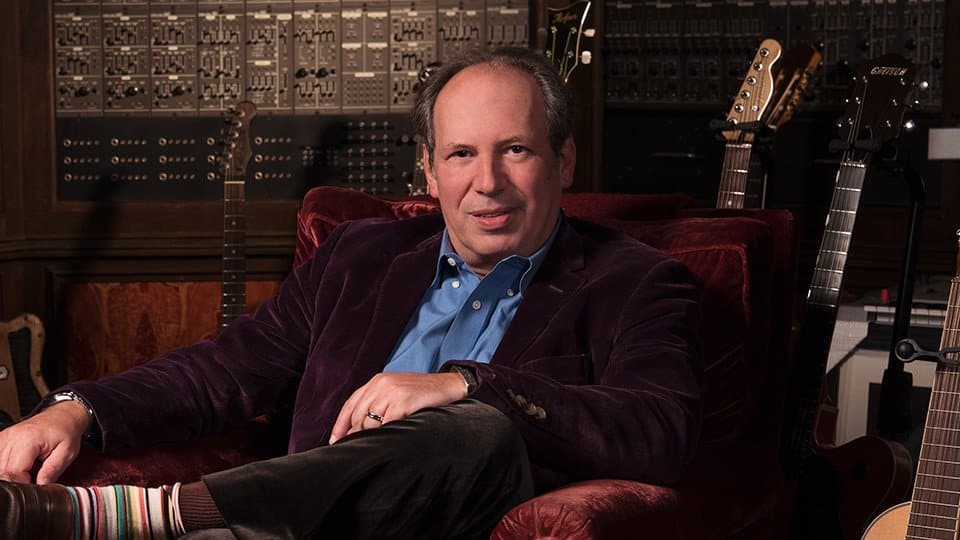
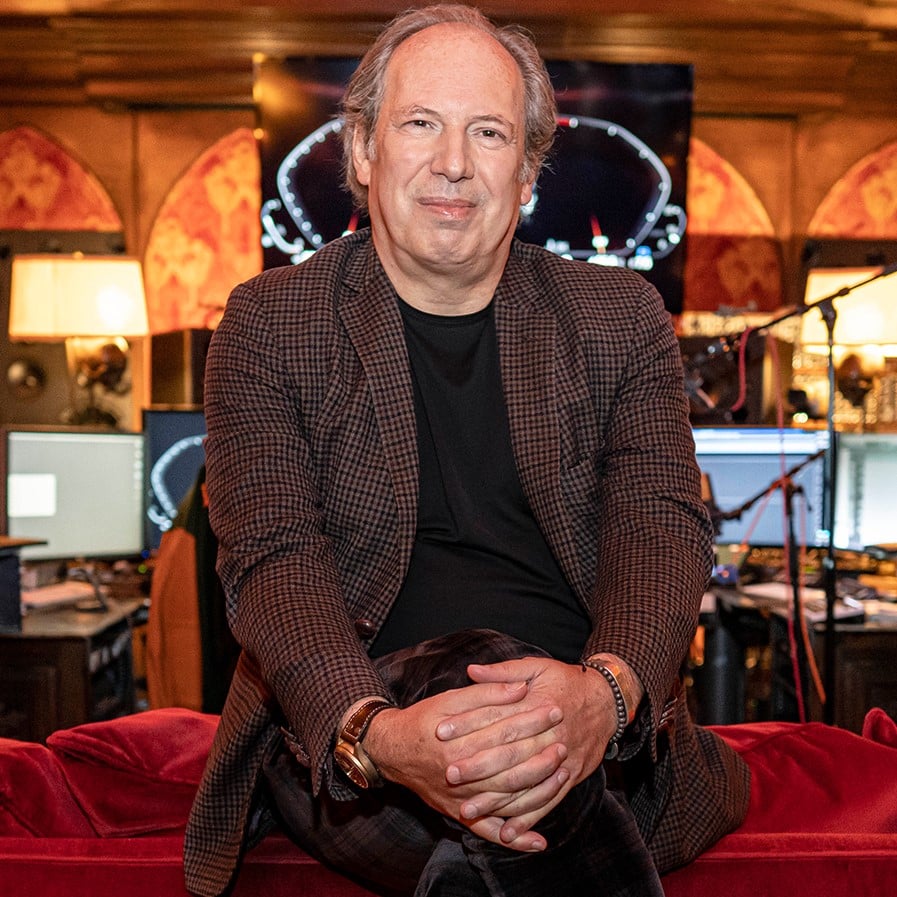


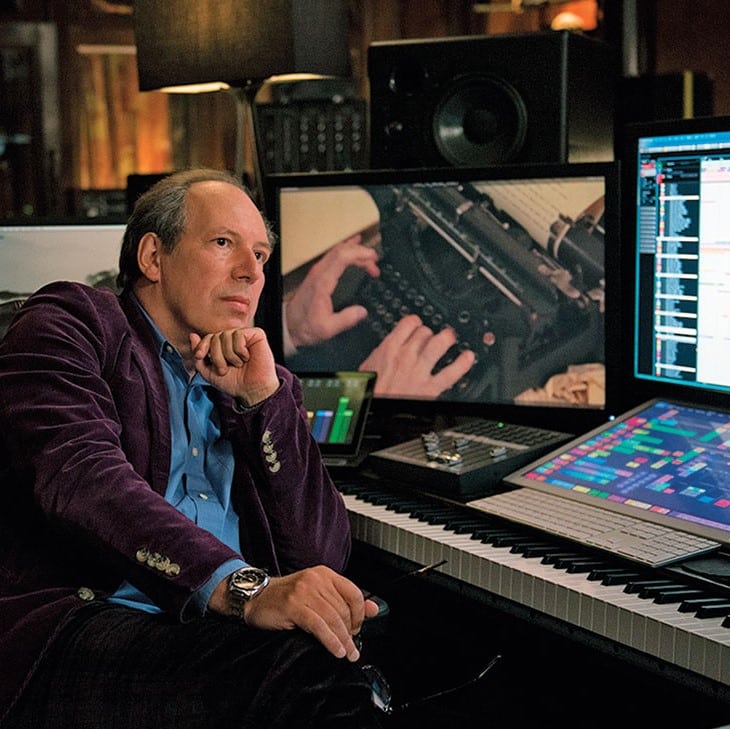
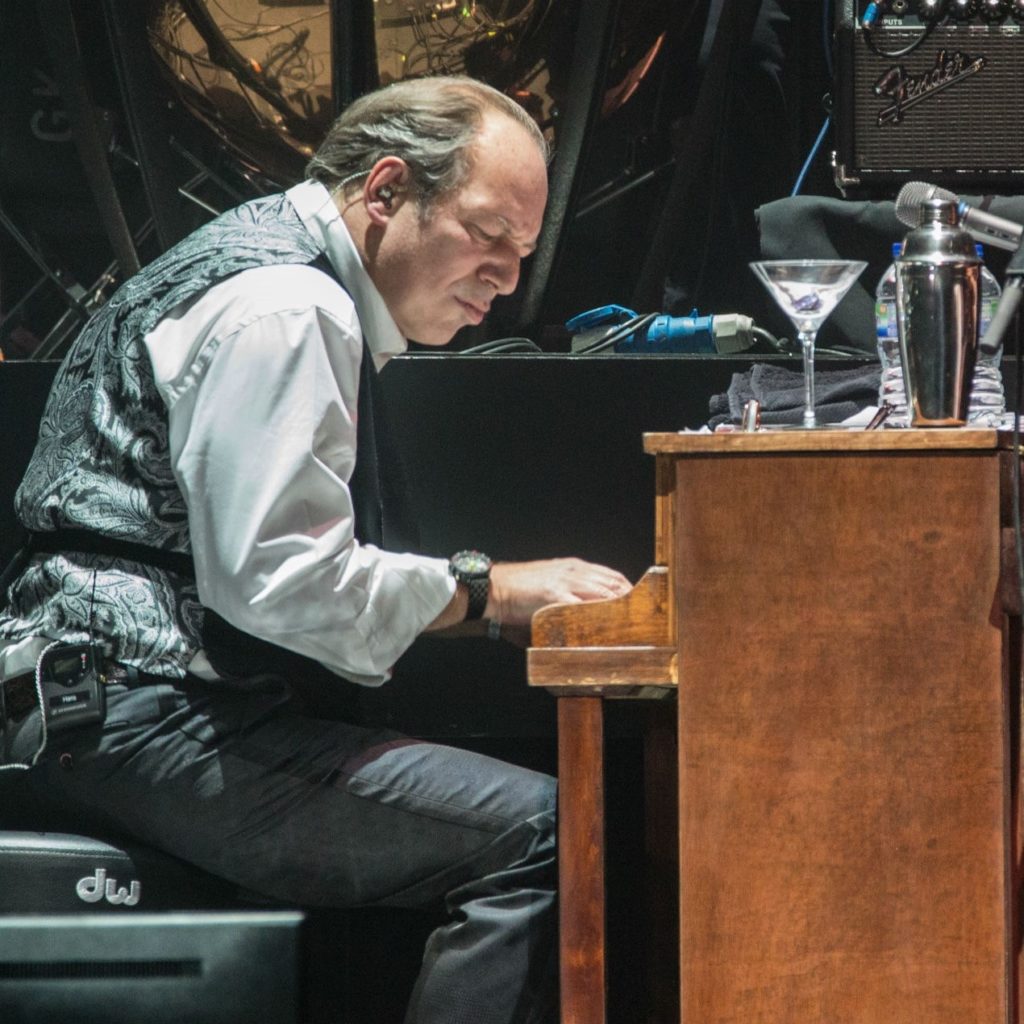









Ask the community or leave a comment
WRITE A REVIEWCustomer Reviews
Leave a review